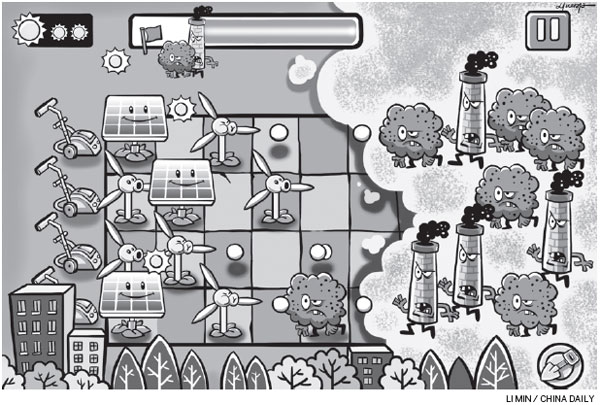
Although more than 7,000 enterprises were punished in Hebei province during 2014, many of them such as steel producers were seen as local economic pillars. The whole province, as a result, is still struggling to find alternative sources of growth following the closures.
Nevertheless, the truth is, most of these "pillar industries" were already nearing obsolescence because of overstaffing and excess capacity. Of course, local governments should compensate the closed enterprises in accordance with the relevant laws and more importantly, encourage companies to adapt to the new energy economy.
Given the borderless nature of air pollution, the Beijing-Tianjin-Hebei area is in dire need of the coordinated control mechanism which started to take shape last year. Aside from a regional committee for preventing air pollution and an information-sharing system based on air quality, the three areas also cooperated to reduce emissions of sulfur dioxide and nitrogen oxides by controlling major airborne pollutant generators.
To keep track of the real-time air quality around China, governments at all levels have set up over 1,400 monitoring stations, while the environmental watchdog completed a massive online monitoring system on polluting industries, the biggest of its kind in the world.
Public awareness of smog-related dangers which was absent for a long time, has also been aroused. A free smartphone application "Pollution Map" developed by the Institute of Public and Environmental Affairs, an environmental group in Beijing, allows users to check the latest emissions in about 190 Chinese cities on an hourly basis, and has become a hit with the public. This is indeed a promising trend, despite there still being a long way to go in the country's war against air pollution.
The author is a professor and director of ecological civilization research center at the Chinese Academy of Governance.
Related Stories